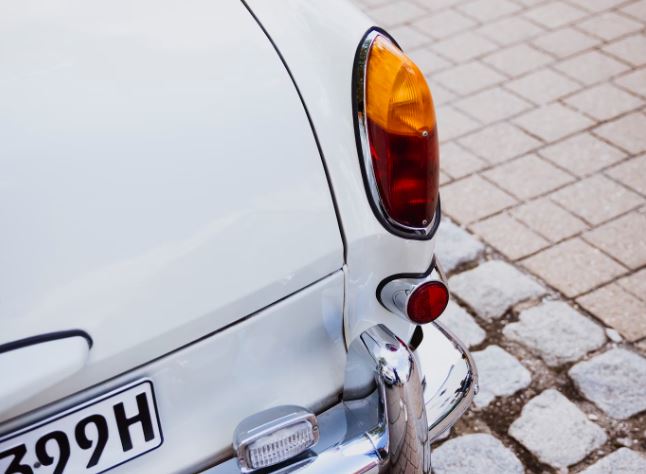
Car maintenance might seem like a chore, but ignoring it can lead to serious headaches down the road. Whether you’re a seasoned driver or a newbie, knowing the common car problems and their solutions can save you time, money, and stress. Let’s dive into some of the most frequent issues drivers face and how to tackle them like a pro. That informative guide is created by Car Removal Sydney service.
Battery Issues
Nothing is worse than getting into your car, turning the key, and hearing nothing but a click. This dreaded sound often signals a dying battery.
Signs of a Dying Battery
- Slow Engine Crank: If your engine takes longer to start than usual, it might be time to check the battery.
- Dim Lights: Dimming headlights and interior lights can be a clear sign your battery is losing charge.
- Electrical Issues: Malfunctions in power windows, radio, or other electrical components can indicate battery trouble.
How to Fix Battery Problems
First, check the battery terminals for corrosion. Clean them with a mixture of baking soda and water, and ensure they’re tightly connected. If the battery is old (typically more than three years), it might be time for a replacement. Investing in a portable battery charger can also save you in a pinch.
Engine Overheating
An overheating engine is not only inconvenient but can also lead to severe damage if not addressed promptly.
Causes of Engine Overheating
- Low Coolant Levels: This is the most common cause. Always keep an eye on your coolant levels.
- Faulty Thermostat: A stuck thermostat can prevent coolant from circulating properly.
- Broken Radiator: Leaks or blockages in the radiator can cause overheating.
Solutions to Prevent and Fix Overheating
Regularly check your coolant levels and top up if necessary. If you notice your car overheating frequently, have a mechanic inspect the thermostat and radiator. In an emergency, turning off the AC and turning on the heater can help pull heat away from the engine.
Flat Tires
Flat tires are inevitable, but knowing how to handle them can make all the difference.
Common Causes of Flat Tires
- Punctures: Nails, glass, and other sharp objects are common culprits.
- Overinflation or Underinflation: Improper tire pressure can lead to blowouts.
- Wear and Tear: Old, worn-out tires are more susceptible to flats.
Steps to Fix a Flat Tire
Always carry a spare tire, jack, and lug wrench in your car. Here’s a quick guide:
- Safety First: Pull over to a safe location.
- Loosen the Lug Nuts: Do this before you jack up the car.
- Jack Up the Car: Lift it high enough to remove the flat tire.
- Replace the Tire: Swap the flat tire with the spare.
- Tighten the Lug Nuts: Lower the car and tighten the lug nuts fully.
Brake Problems
Your brakes are your car’s most crucial safety feature. Ignoring brake issues can lead to dangerous situations.
Symptoms of Brake Issues
- Squeaking or Squealing: This sound often indicates worn brake pads.
- Grinding Noise: A grinding sound usually means the brake pads are completely worn out.
- Vibration: If you feel a vibration when braking, it could indicate warped rotors.
How to Address Brake Problems
Regularly inspect your brake pads and replace them if they’re worn. If you hear grinding noises or feel vibrations, it’s best to consult a mechanic as these could signify more serious problems.
Transmission Troubles
Transmission issues can be costly and complex, but early detection can help prevent major repairs.
Recognizing Transmission Issues
- Slipping Gears: If your car changes gears unexpectedly, it might be a sign of transmission problems.
- Delayed Shifting: Slow response when shifting gears is another red flag.
- Leaking Fluid: Check for red or brown fluid leaks under your car.
Solutions for Transmission Problems
Regularly check your transmission fluid levels and top up if needed. If you notice slipping gears or delayed shifting, it’s crucial to have your transmission inspected by a professional. Sometimes, a simple fluid change can resolve the issue, but more severe problems might require extensive repairs.
Alternator Failures
Your car’s alternator is responsible for charging the battery and powering the electrical system when the engine is running. When it fails, you’re left with a dead car.
Warning Signs of Alternator Problems
- Dim Lights: Similar to battery issues, dimming lights can indicate alternator problems.
- Battery Warning Light: If this light appears on your dashboard, it might be your alternator.
- Electrical Failures: Problems with power windows, seats, or the stereo could be linked to the alternator.
How to Repair or Replace an Alternator
If you suspect alternator problems, it’s best to have it tested by a professional. Replacing an alternator can be complex, but if you’re comfortable with car repairs, you can save money by doing it yourself. Ensure you disconnect the battery before starting the repair.
Conclusion
Regular car maintenance is crucial for preventing and resolving these common car problems. By staying proactive and addressing issues early, you can ensure your vehicle runs smoothly and safely. Remember, a well-maintained car not only lasts longer but also provides a safer and more enjoyable driving experience.
FAQs
What are the early signs of car battery problems?
Early signs include slow engine crank, dimming lights, and electrical issues like malfunctioning power windows or radio.
How can I prevent my engine from overheating?
Regularly check and maintain your coolant levels, inspect your radiator for leaks or blockages, and ensure your thermostat is functioning correctly.
What should I do if I get a flat tire on the road?
Pull over to a safe location, loosen the lug nuts, jack up the car, replace the flat tire with the spare, and tighten the lug nuts fully before driving.
How often should I check my brakes?
It’s recommended to inspect your brake pads every six months and replace them if they show significant wear.
Can I fix transmission issues myself?
While some minor issues like low fluid levels can be fixed by the car owner, major transmission problems typically require professional repair.






